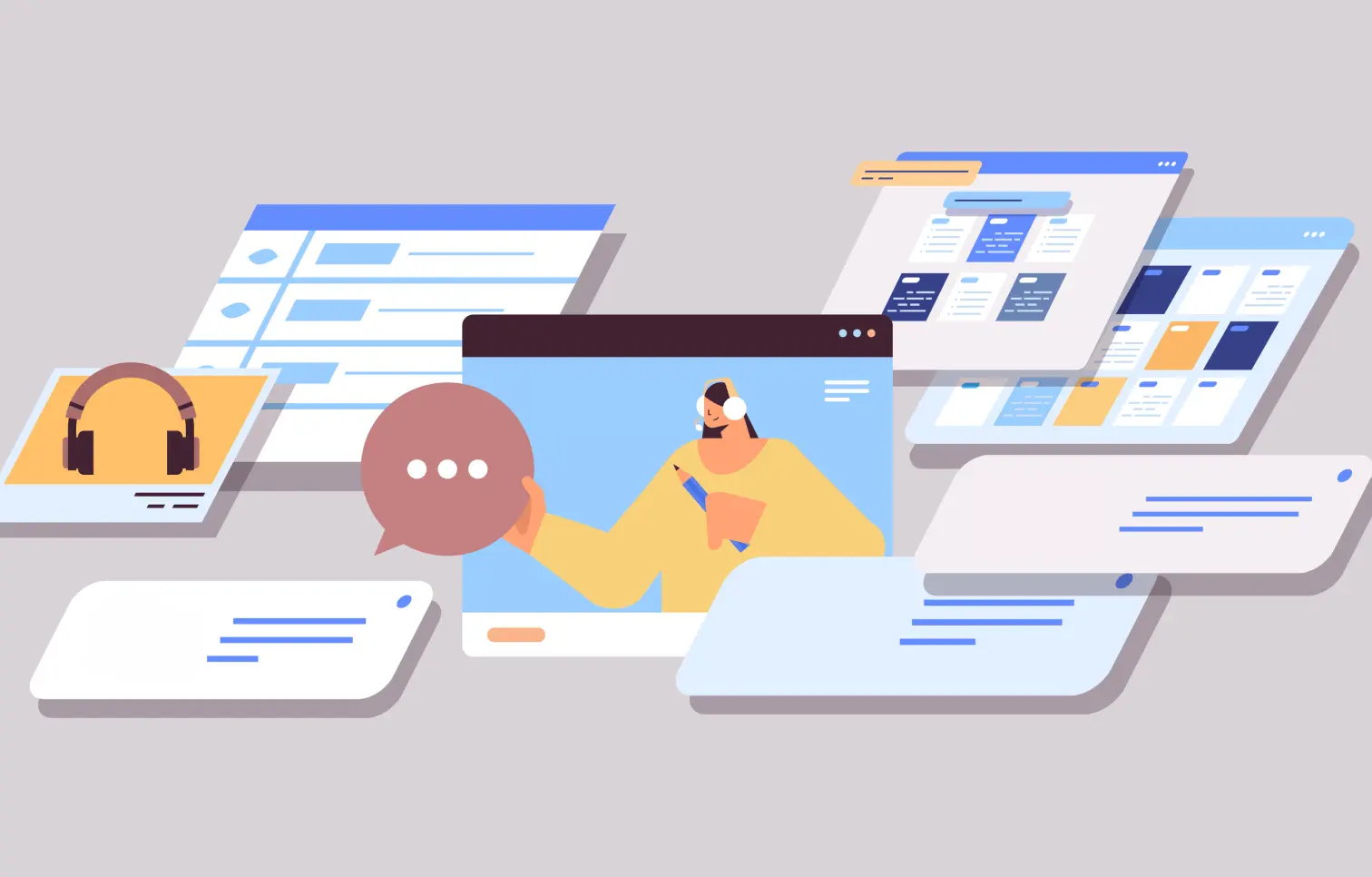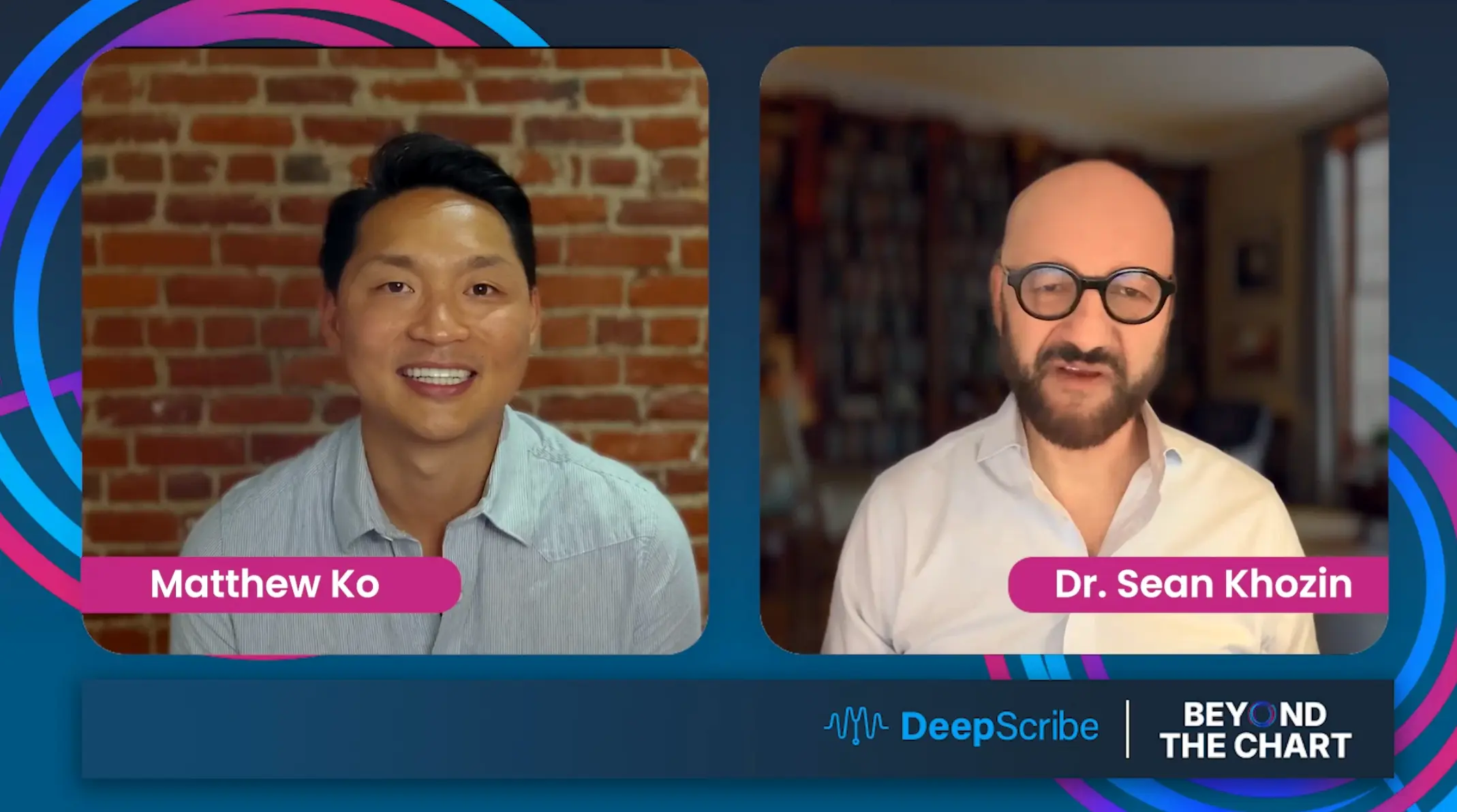Will traditional medical transcription become obsolete?
Will traditional medical transcription become obsolete? Yes. Maybe not tomorrow, maybe not by 2030, but, yes — it's an industry that, as constructed, can't keep up with modern clinical demands. Yet at the same time, medical transcription as an element of documentation isn't dying out — far from it. It's evolving. And the future is looking better than ever.


Note: This article was originally published in 2021. It has since been refreshed to reflect current trends in ambient AI, clinical documentation technology, and DeepScribe’s modern positioning.
Will medical transcription become obsolete?
In healthcare, constant technical innovations and knowledge growth make for a landscape that is always shifting. For many clinicians, getting comfortable with one tool, one system, one solution only means closer proximity to its next iteration. Over the past ten years, nothing embodies that ever-changing reality more than medical note-taking solutions and documentation technologies.
From human scribes to early dictation tools, to virtual scribes and speech-to-text software, alleviating the documentation burden has often felt like chasing the impossible. With each new iteration comes new promises — but rarely a complete solution. Since HITECH and Meaningful Use came into effect in 2010, traditional medical transcription has remained one of the more trusted (if increasingly outdated) methods for reducing administrative overhead. But in a world now driven by ambient intelligence, is medical transcription here to sta
The Future of Medical Transcription: Two Competing Methods
There are two ways to look at the future of transcription in healthcare. On one hand, we have traditional transcription: audio dictation reviewed by human transcriptionists. On the other, we have a new generation of ambient AI solutions that don’t just transcribe, but understand the clinical encounter.
To understand where the industry is headed, let’s examine both.
Recommended Reading: Pros and Cons of Medical Transcription Services
ITraditional Medical Transcription
The traditional model relies on a provider dictating notes post-visit, which are then typed and formatted by a human transcriptionist. This method has been standard practice for decades, and while it once saved time compared to manual entry, it now falls short in nearly every measurable way.
Turnaround times, cost, documentation consistency, EHR integration, and scalability all present major limitations. As documentation standards and complexity continue to rise, traditional medical transcription simply can’t keep pace.
The U.S. Bureau of Labor Statistics forecasts that medical transcriptionist roles will decline by 7% over the next eight years — a clear indication of where things are headed.
So, will traditional transcription become obsolete? Yes. Traditional medical transcription is being replaced by ambient AI technology.
How Ambient AI is Replacing Traditional Medical Transcription
While traditional transcription has faded, it’s clear that ambient AI has already reshaped clinical documentation, and DeepScribe is leading that transformation through a comprehensive ambient AI operating system designed for the most complex workflows.
Modern ambient AI solutions like DeepScribe go beyond speech-to-text. They:
- Capture the natural conversation between doctor and patient
- Extract and structure medically relevant information
- Apply contextual understanding to generate accurate, high-quality notes tailored to each patient and each clinician
- Automatically insert documentation into the provider’s EHR system
- Generate accurate medical codes, such as ICD-10, E/M, and HCC to streamline reimbursement and reduce billing errors
The Verdict: Evolution, Not Extinction
The question isn't whether medical transcription will disappear but how quickly healthcare organizations will embrace the next generation of documentation technology. Traditional transcription served its purpose in an era of simpler clinical workflows, but today's healthcare demands solutions that can match the complexity and pace of modern medicine.
Ambient AI represents more than just technological advancement; it's a fundamental shift toward intelligent documentation that works seamlessly within clinical workflows rather than adding to them. For healthcare providers still relying on traditional transcription, the writing is on the wall: adapt or fall behind.
The future of clinical documentation is already here, and it's ambient, intelligent, and designed to give clinicians what they've always wanted: more time with patients and less time with paperwork. As this technology continues to mature and integrate deeper into healthcare systems, traditional transcription won't just become obsolete but will seem as antiquated as handwritten charts.
For healthcare organizations evaluating their documentation strategies in 2025 and beyond, the choice is clear: invest in solutions that understand medicine as well as they understand technology, or risk being left behind in a rapidly evolving landscape.
Here’s what to look for when considering ambient AI for specialty care.
For healthcare organizations evaluating their documentation strategies, the choice is clear: invest in solutions that understand medicine as well as they understand technology, or risk being left behind in a rapidly evolving landscape. To see how leading ambient AI platforms are already delivering on clinicians' evolving expectations, read about what clinicians want next from ambient AI technology.
text
Related Stories
Realize the full potential of Healthcare AI with DeepScribe
Explore how DeepScribe’s customizable ambient AI platform can help you save time, improve patient care, and maximize revenue.




